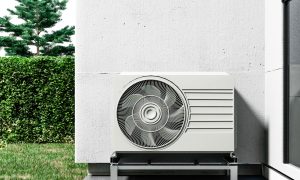Addressing health inequities and environmental concerns, this article discusses the critical need for rapid policy changes to increase access to clean fuels, protect health, and mitigate climate change impacts. Adopting clean fuels and technologies is crucial in curbing household air pollution and protecting public health.
Dr. Maria Neira, Director, Department of Environment, Climate Change and Health, WHO states, “Air Pollution is a major public and environmental health issue with serious threats to people’s wellbeing and our environment.”
Around 2.3 billion individuals worldwide use open fires or inefficient stoves fuelled by sources such as kerosene, biomass (wood, animal dung, and crop waste), and coal, leading to the generation of harmful household air pollution. Promoting the adoption of clean fuels and technologies to mitigate household air pollution and safeguard health is crucial. These alternatives include solar power, electricity, biogas, liquefied petroleum gas (LPG), natural gas, alcohol fuels, and biomass stoves, meeting the emission targets outlined in the WHO Guidelines. The ambient concentration of PM2.5 particles that have an aerodynamic diameter of less than 2.5 micrometres in our cities is far more than the World Health Organization (WHO) guideline of 10µg/m3 as well as that of the Central Pollution Control Board (CPCB) Standard 40µg/m3.
Using inefficient and polluting fuels and technologies in and around homes contributes to household air pollution. These fuels release various health-damaging pollutants, including fine particles that can deeply penetrate the lungs and enter the bloodstream. In poorly ventilated residences, indoor smoke may contain fine particles up to 100 times higher than acceptable standards—women and children who spend significant time close to the domestic hearth experience particularly high exposure.
Guidelines for IAQ
In light of the widespread utilisation of polluting fuels and stoves for cooking, the World Health Organisation (WHO) has released a set of normative guidelines known as the “Guidelines for Indoor Air Quality: Household Fuel Combustion.” These guidelines provide practical, evidence-based recommendations regarding which fuels and technologies employed in households can be deemed environmentally clean. The guidance explicitly discourages kerosene use and advises against using unprocessed coal. It also outlines specific performance targets for fuels and technologies, expressed as emission rates, to safeguard health. The guidelines underscore the significance of addressing all household energy uses, focusing on cooking, space heating, and lighting. This approach aims to ensure positive outcomes for both health and the environment.
With strong policy action, 2.1 billion people are estimated to still need access to clean fuels and technologies in 2030. Strategies to increase the adoption of clean household energy include policies that provide financial support to purchase cleaner technologies and fuels, improved ventilation or housing design, and communication campaigns to encourage clean energy use.
Each year, 3.2 million people die prematurely from illnesses attributable to household air pollution caused by the incomplete combustion of solid fuels and kerosene used for cooking. Particulate matter and other pollutants in household air pollution inflame the airways and lungs, impair immune response and reduce the oxygen-carrying capacity of the blood. There is also evidence of links between household air pollution and low birth weight, tuberculosis, cataract, nasopharyngeal and laryngeal cancers.
Impacts on health and climate change
Substantial policy changes are imperative to rapidly increase the accessibility of clean fuels and technologies to a larger population by 2030. This is essential for tackling health disparities, attaining the goals outlined in the 2030 Agenda for Sustainable Development, and mitigating the effects of climate change. The adverse health effects resulting from the use of polluting fuels and household technologies have a disproportionate impact on women and children. These demographic groups bear a heavier burden due to their engagement in activities such as cooking, collecting firewood, and spending more time exposed to harmful smoke emitted by these pollutant-inducing stoves and fuels.
This exposure affects health and also increases the risk of musculoskeletal injuries as women and children gather fuel, limiting their time for education and other productive activities. Moreover, using various fuels and technologies for household purposes, such as cooking, heating, and lighting, poses significant safety risks.
Accidental ingestion of kerosene is a leading cause of childhood poisonings, while severe burns and injuries in low- and middle-income countries are often linked to household energy use. Shockingly, over 750 million people lack access to electricity, forcing reliance on polluting devices like kerosene lamps, exposing them to high levels of harmful particulate matter.
The duration spent utilising and preparing fuel in inefficient and polluting devices limits possibilities for health and development. This also raises environmental concerns. Inefficient stove combustion produces emissions, including black carbon (sooty particles) and methane, potent short-lived climate pollutants. Importantly, household air pollution substantially contributes to the broader issue of ambient – -outdoor air pollution.
Most Indian cities fall short of meeting the prescribed National Ambient Air Quality Standards, according to a Central Pollution Control Board (CPCB) report. In the fiscal year 2021-22, they witnessed just 38 out of 131 Indian cities achieving their annual pollution reduction objectives. This scenario underscores the urgent need for dedicated efforts and immediate measures to combat the pressing issue of air pollution.
Compiled thru’ inputs and www.who.int
Cookie Consent
We use cookies to personalize your experience. By continuing to visit this website you agree to our Terms & Conditions, Privacy Policy and Cookie Policy.















